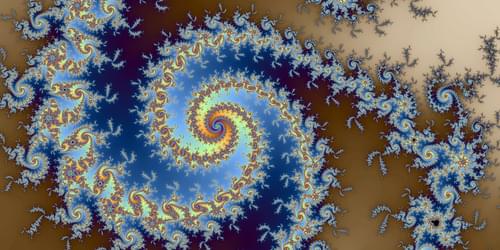Researchers find that a phenomenon called multifractality manifests in the conductance fluctuations of a 2D electron gas as the gas undergoes a topological phase transition.
Fractals are geometric patterns that repeat themselves across different length scales. Such patterns are ubiquitous, appearing in the outlines of snowflakes, in swirls of turbulent fluids, and in graphs tracing the highs and lows of financial markets. Now Aveek Bid and his colleagues at the Indian Institute of Science in Bangalore show that fractals can also emerge in the electrical-conductance fluctuations of a 2D electron gas in graphene as the electron gas transitions between two topological phases [1]. The results confirm predictions made earlier this year [2].
Subject a 2D electron gas to a strong perpendicular magnetic field, and its Hall conductance—the conductance perpendicular to an induced current—takes on certain discrete values. But during a transition from one discrete value to another, this conductance can exhibit fluctuations. Bid and his colleagues measured these fluctuations in the 2D electron gases of two graphene-based devices. Using detailed data analysis, they determined that the conductance fluctuations contained patterns that could be accurately described by a multifractal—a fractal that scales spatially in several different ways.
